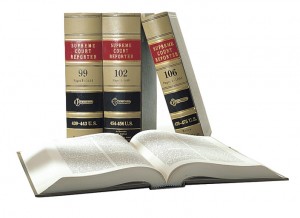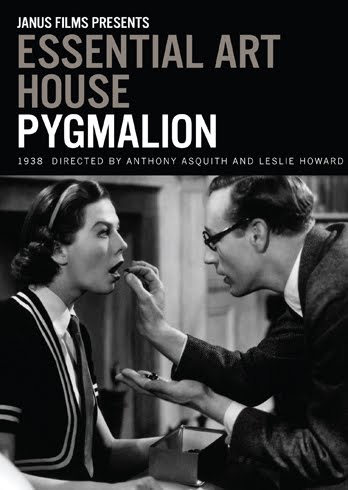by Anuj Agarwal
[box]Reporters are not just a media phenomenon, mind you – the universe of Law has its own. Meet these thick and carefully bound volumes that preserve a vast sea of knowledge for lawyers. For Anuj Agarwal, browsing through these ‘Reporters’ is a journey back in time. Through the musty pages, he travels to times that are much neglected, looking into more than the just the Law – the people and their lives.[/box]
I turn the pages of the book and the musty smell fills my nose. I am taken to a time which seems so far away, a time that now lies neglected and nearly forgotten, another musty page of the book which no one bothers to read.
Till I became a student of law, the word “Reporter” would always conjure up images of people running around with microphones in their hands, of strangely excitable chaps on the telly brining the very latest breaking news and of bearded men toiling away at their typewriters. Sometimes the images, and here my mind would pause for more than a few minutes, would veer towards salwar kurta clad women with a pen tucked in behind the ear and a jhola swinging from the shoulder.
As I slowly waded through the world of jurisprudence though, the word “Reporter” began to take an entirely different meaning. In legal parlance, a “Reporter” refers to a collection of case law; a “book” of judgments if you will. I was told that a Reporter can be gold for the law student; it is within those musty pages that one could study the exact manner in which a particular position or conclusion in law was reached. It was through the words of wise men long dead that the true learning process would take place; in the thick and carefully bound volumes hid a veritable sea of knowledge and learning.
I am not sure how far I bumbled in that sea of knowledge though. I was largely distracted by the fact that the air-conditioned library was perfect for a break from the sultry heat of Calcutta. Another reason for the failure in knowledge-imbibition was the fact that I was inevitably drawn to minor, inconsequential verdicts, to case laws which were not really landmark judgments, to decisions which did not alter the smooth river of Law in any manner. To be honest, it was not the law that drew me to those judgments; rather it was the glimpse into the past that they offered. These books allowed me to do just that, indulge in the slightly guilty pleasure of trooping my nose where it certainly did not belong.
Amongst the old Indian reporters (which stretched back to the early 1900s) the ones that always caught my attention were the decisions of courts which no longer exist in India. So I would browse through the judgments of the High Court at Rangoon and Peshawar and Oudh and think of what the courts must have been like in those days. The court at Rangoon would probably have been filled with the humid, tropical air and short Burmese men and women milling about. Perhaps, just perhaps, heavy teak chairs and magnificent tables adorned the court rooms. Would the pale faced British judges have sweated in the tropic humidity, dabbing a handkerchief to their sweaty faces now and then? In moments of boredom (and I suppose such moments came by fairly often), would the judge have looked out of the courtroom window and seen thick, verdant greenery and people riding their bullock carts? I like to think that even then, the snooty senior barristers would have dispersed for tea to discuss the various goings on within the Empire. In the evening, perhaps the lawyers would have made their way to the Club for a quick evening drink and ruminate over the day’s victories or losses.
What about the High Court of Judicature at Peshawar? I suppose the dry desert breeze would have blown through the courtrooms every now and then. I can well imagine how the curious Pasthtoons would have stood outside the court; big tough men anxiously waiting for the verdict.
Since the judgments do not reflect the manner in which a particular case was argued, I would often find myself wondering how those ancient lawyers would have addressed the court. Would their arguments too have been laced with a tinge of flattery? Would they too have woven their magic with words? I am quite sure that unscrupulous lawyers existed even then, rubbing their hands with glee upon spotting an unsuspecting layman with a legal problem. What about the clients themselves? Would they also have haggled for a lesser fee? Would they have broken down in tears after a negative judgment or erupted with joy after a positive one? How would the press have reported the judgment? Would photographers have waited for the lawyers outside the court room, journalists impatient for a witty quote?
Once in a while, my mind would focus on the fact-situation itself and even here the surprises did not end. For instance, in Ma Mya and Anr decided in 1927, the Rangoon High Court had decided the fate of a Chinese couple who had eloped from China and settled in Burma (the question was which personal law would apply). And in my head, the image created was that of a confused couple in a strange country, driven by love to a new and foreign land.
In another matter, one dealing with the former princes of Travancore, the Privy Council had to decide whether the East India Company could usurp the land of the royal family of Travancore. And in my head, the image created was that of a haughty prince robbed of his pomp and grandeur after the sudden demise of his step-father. Or perhaps a grieving queen who sought legal counsel even as the courtiers and the noblemen plotted her downfall.
I spent many an hour that way and, looking back, I am glad I did for it is a luxury that I can no longer afford. Now, the Reporters are quickly scanned through, the judgments skimmed over just to see what the latest judgment says, and check whether a particular position in law has changed for the benefit of my client. The summaries of the judgments are all one can bother to read, a hurried glance through the pages to see if there is anything of relevance for the current matters. But every now and then, Fate gives me a chance to visit the treasures hidden in the musty pages of those Reporters, back to a time much neglected. And needless to say, I treasure those opportunites.
After spending five years “studying” law in Calcutta (he was actually gallivanting across the north-east), Anuj spent two years litigating in the various courts of Delhi. Realising that his greatness lay elsewhere and NOT because he fired himself, Anuj recently shifted to Bombay. He now spends his time cursing the roads, loving the women, hunting down places to eat and building his character. And trying to make a living. He has four friends, two of whom can speak Manadarin and one of whom is imaginary.He blogs at www.kroswami.wordpress.com, compulsively checking the site stats every five minutes or so.
[button link=” https://sparkthemagazine.com/wp-content/uploads/2011/12/spark-december-2011.pdf” color=”black” newwindow=”yes”] Read all the articles at one place! Download the PDF! [/button] [button link=”http://issuu.com/sparkeditor/docs/spark-december-2011?mode=embed&layout=http%3A%2F%2Fskin.issuu.com%2Fv%2Fcolor%2Flayout.xml&backgroundColor=000000&showFlipBtn=true” color=”green” newwindow=”yes”] Get the print mag feel. Flip and read on the e-reader![/button]
[facebook]Share[/facebook] [retweet]Tweet[/retweet]











Excellent and out of the ordinary stuff..like finding an unlikely Reporter lying around for the first time.
Enjoyed the imaginative forays.. 🙂